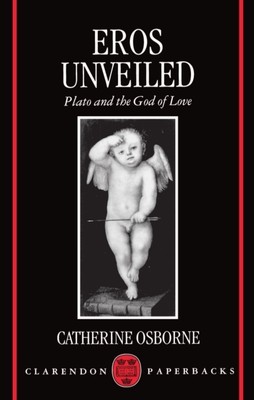
- We will send in 10–14 business days.
- Author: Catherine Osborne
- Publisher: Clarendon Press
- ISBN-10: 0198267665
- ISBN-13: 9780198267669
- Format: 13.8 x 21.5 x 1.6 cm, minkšti viršeliai
- Language: English
- SAVE -10% with code: EXTRA
Reviews
Description
This unique book challenges the traditional distinction between eros, the love found in Greek thought, and agape, the love characteristic of Christianity. Focusing on a number of classic texts, including Plato's Symposium and Lysis, Aristotle's Ethics and Metaphysics, , and famous passages in Gregory of Nyssa, Origen, Dionysius the Areopagite, Plotinus, Augustine, and Thomas Aquinas, the author shows that Plato's account of eros is not founded on self-interest. In this way, she restores the place of erotic love as a Christian motif, and unravels some longstanding confusions in philosophical discussions of love.
EXTRA 10 % discount with code: EXTRA
The promotion ends in 21d.22:29:53
The discount code is valid when purchasing from 10 €. Discounts do not stack.
- Author: Catherine Osborne
- Publisher: Clarendon Press
- ISBN-10: 0198267665
- ISBN-13: 9780198267669
- Format: 13.8 x 21.5 x 1.6 cm, minkšti viršeliai
- Language: English English
This unique book challenges the traditional distinction between eros, the love found in Greek thought, and agape, the love characteristic of Christianity. Focusing on a number of classic texts, including Plato's Symposium and Lysis, Aristotle's Ethics and Metaphysics, , and famous passages in Gregory of Nyssa, Origen, Dionysius the Areopagite, Plotinus, Augustine, and Thomas Aquinas, the author shows that Plato's account of eros is not founded on self-interest. In this way, she restores the place of erotic love as a Christian motif, and unravels some longstanding confusions in philosophical discussions of love.


Reviews